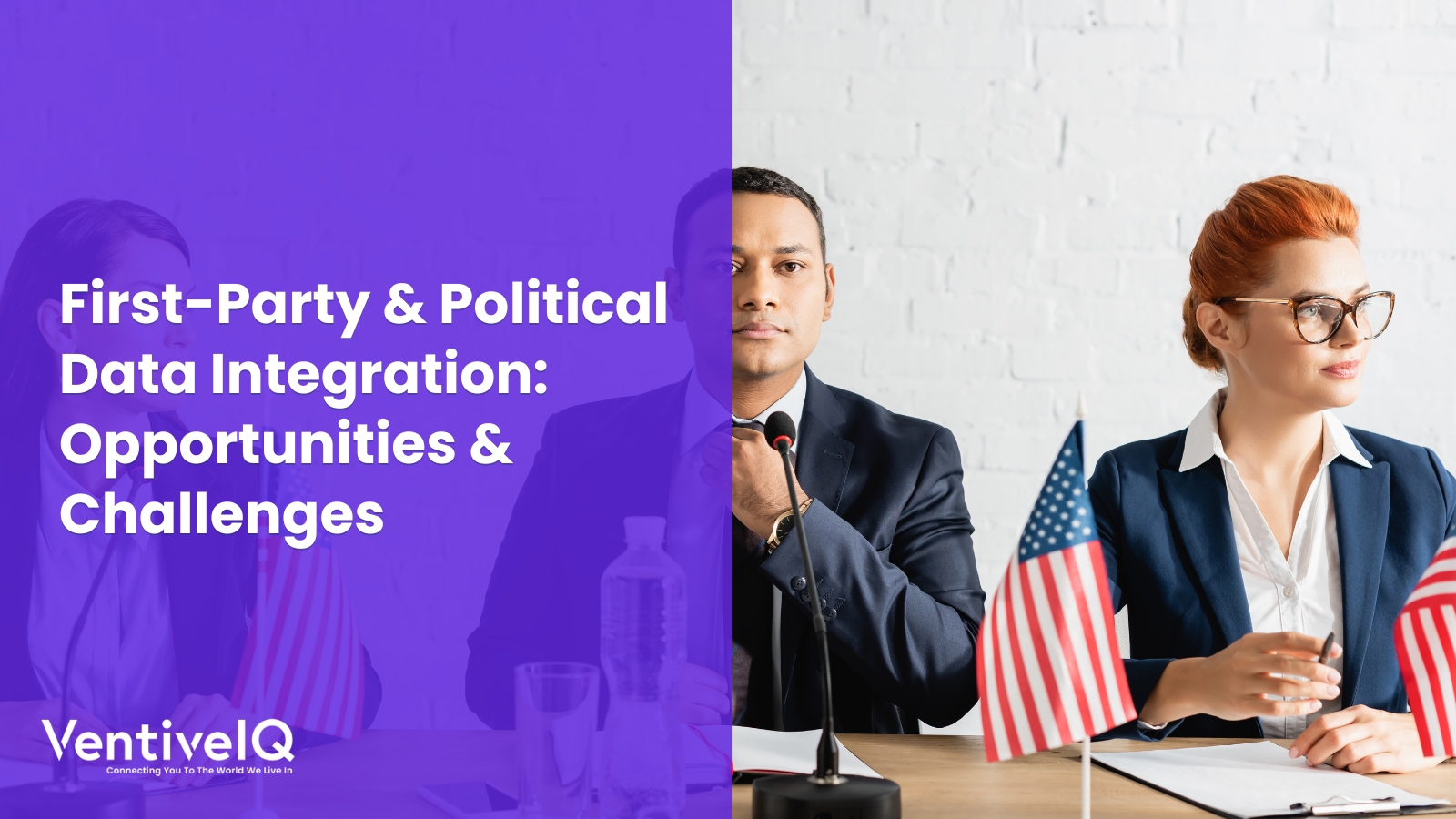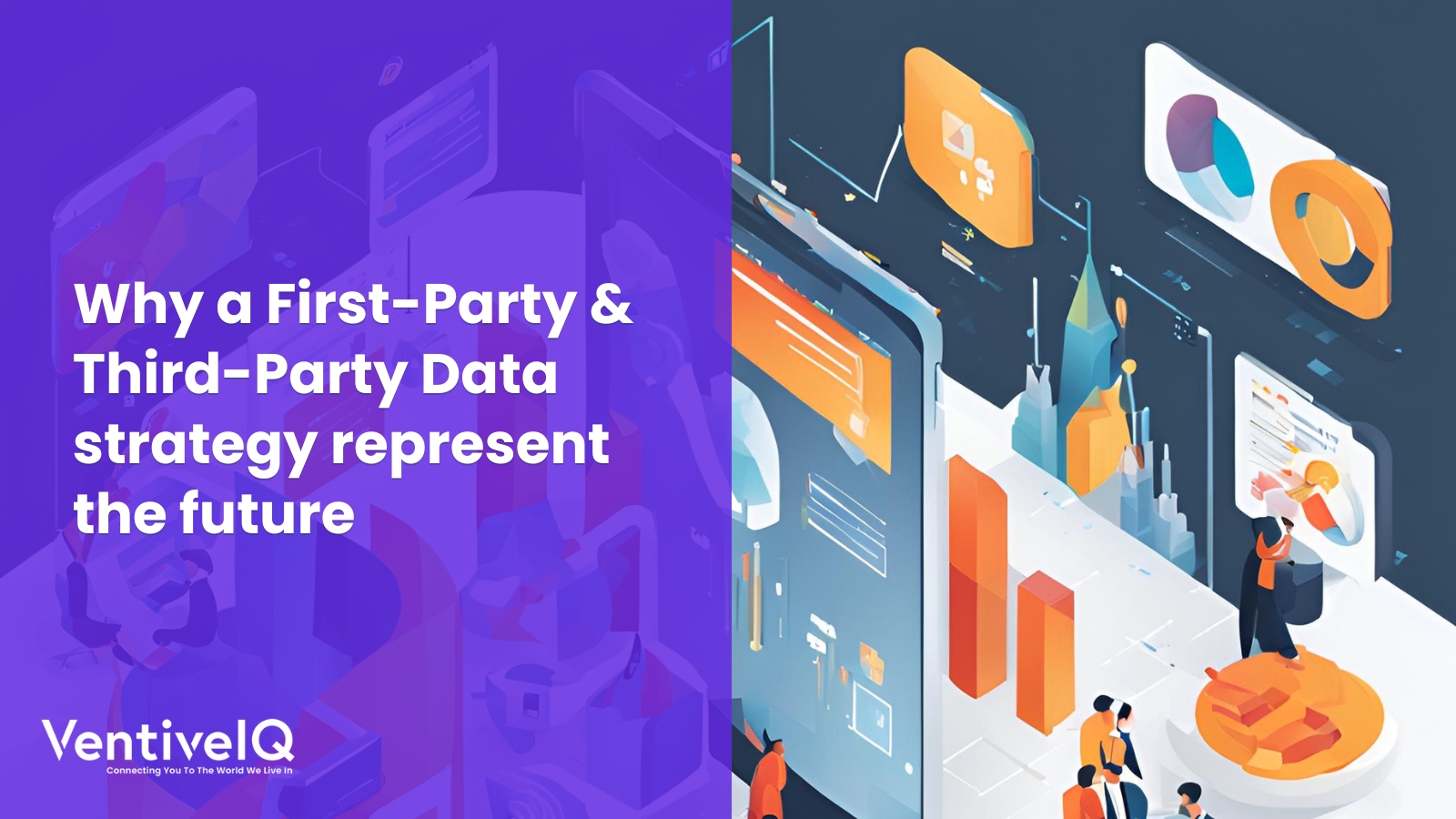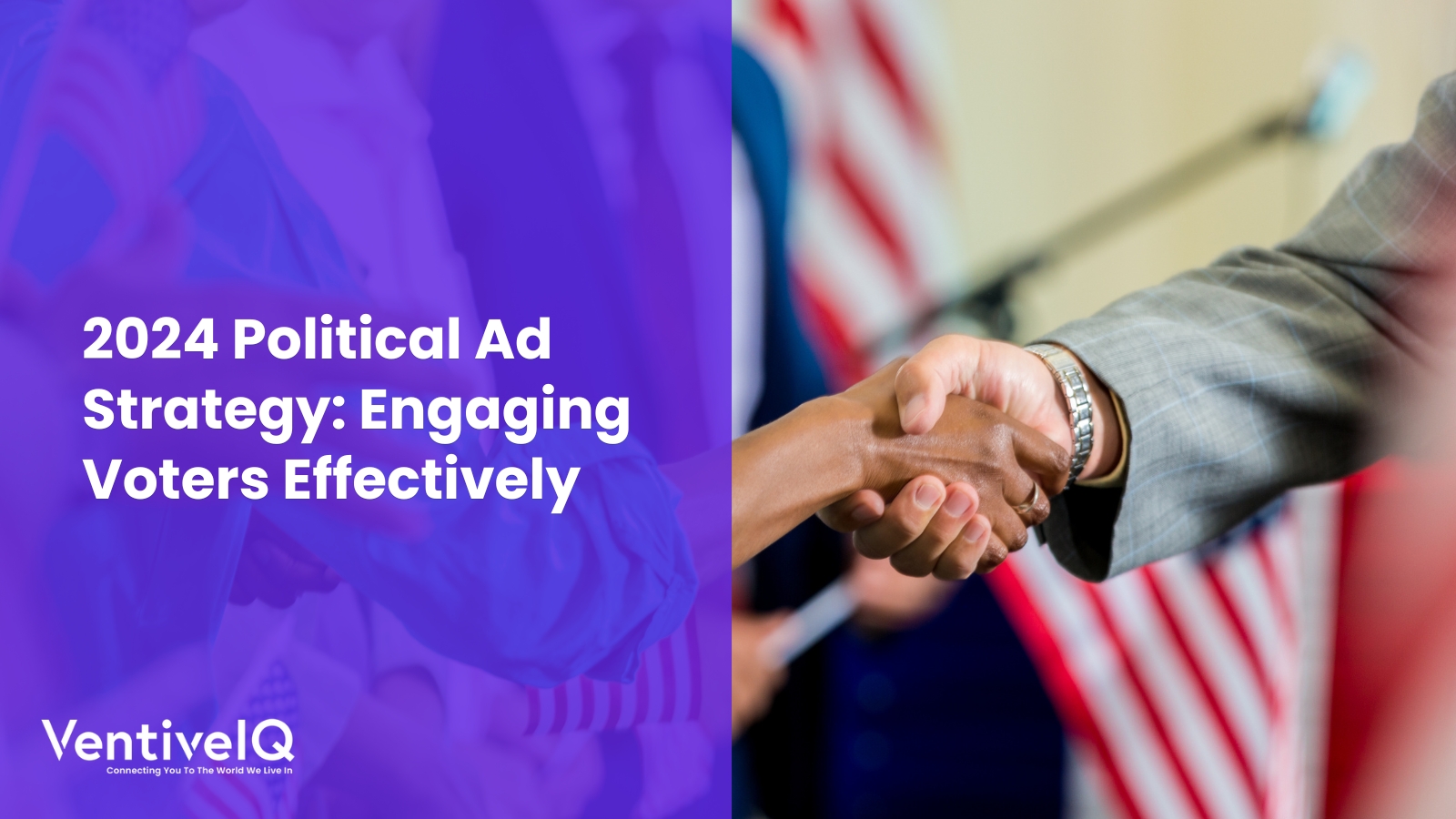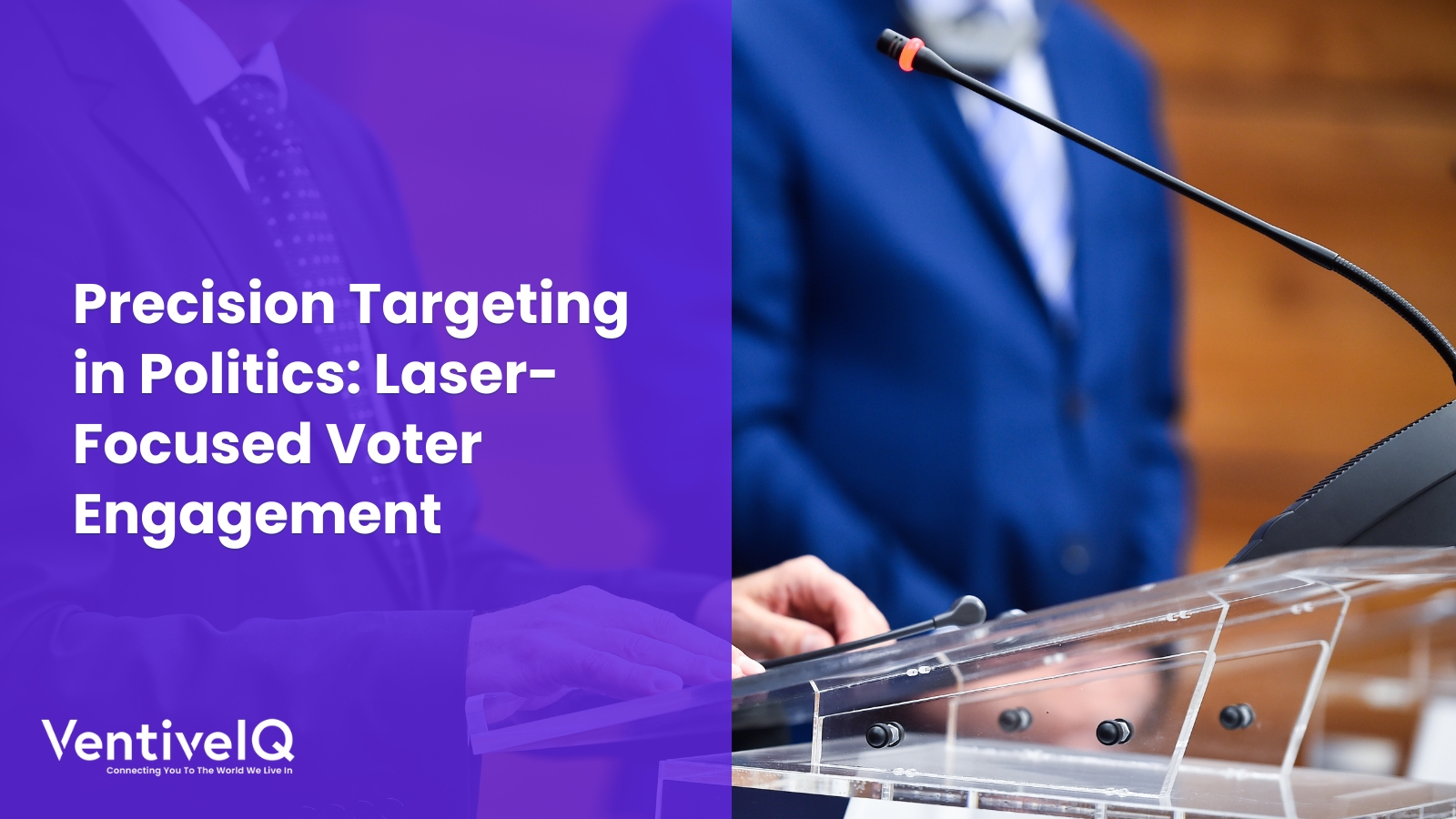Explore the opportunities and challenges of integrating first-party Data and political data. Learn how VentiveIQ uses data analytics to make data-driven decisions.
Introduction
The American political landscape is a data-driven battlefield. Campaigns, PACs, and advocacy groups leverage information to target voters, craft messaging, and mobilize support. First-party data – information collected directly from supporters – holds immense value in this data-centric environment. However, integrating first-party data with political data can be a double-edged sword. Here, VentiveIQ will uncover the opportunities and challenges associated with first-party and political data integration, empowering you to make informed decisions for your political campaign or advocacy effort.

First-Party Data: The Power Within Your Grasp
First-party data is information you collect directly from your supporters and potential voters. This includes website visits, email sign-ups, volunteer registrations, and survey responses. It is valuable because it offers deep insights into your audience’s demographics, interests, and political leanings. Here is where the magic happens:
- Hyper-Targeted Messaging: By analyzing first-party data, you can tailor messaging to resonate with specific segments of your audience. Imagine crafting emails addressing specific concerns for young voters or environmental issues for sustainability advocates.
- Improved Voter Engagement: First-party data reveals engagement levels, allowing you to identify your most passionate supporters. This enables targeted outreach efforts, encouraging them to volunteer, donate, or spread the word.
- Data-Driven Decision-Making: Campaign decisions should not be based on gut feelings. First-party data helps analyze the effectiveness of different strategies, allowing for real-time adjustments and optimization. Was a specific ad format performing well within a particular demographic? Double down on it!
Political Data Integration: Expanding the Horizon
Political data, often from third-party sources, provides even more insights. This can include voter registration data, demographics, past voting history, and even social media sentiment analysis. Integrating this data with your first-party data unlocks further potential:
- Identify Undecided Voters: Public voter registration data can help identify potential supporters who have yet to cast a vote in previous elections. Targeted outreach can sway their decision.
- Microtargeting: With a more comprehensive picture of your electorate, you can hyper-target messaging to hyper-local levels. Imagine addressing local concerns specific to a particular neighborhood.
- Modeling and Prediction: Political data allows you to model voter behavior and predict potential outcomes. This helps focus resources on areas with the highest impact, optimizing campaign spending.
Opportunities in Data Integration
Integrating first-party and political data offers several key opportunities:
- Enhanced Targeting and Personalization: Combining first-party data with political data enables more precise targeting and personalized messaging. Political campaigns can identify specific voter segments and craft tailored messages that resonate with individual voters’ interests and concerns. This targeted approach increases campaign effectiveness and enhances voter engagement.
- Improved Decision-Making: Data-driven decisions are more informed and strategic. Organizations can gain deeper insights into voter behavior and preferences by integrating first-party data with political data. This comprehensive view helps formulate effective strategies, optimize resource allocation, and make informed decisions that drive successful outcomes.
- Increased Voter Engagement: Personalized outreach and targeted messaging foster a deeper connection with voters. When voters receive relevant and personalized communication, they are more likely to engage with the campaign. This increased engagement can lead to higher voter turnout and stronger support for the political cause.
- Enhanced Data Analytics: Data integration allows for more robust data analytics. Organizations can uncover previously hidden patterns, trends, and correlations by analyzing combined datasets. These insights can inform campaign strategies, identify key issues, and more accurately predict voter behavior.

Challenges in Data Integration
While the opportunities are significant, integrating first-party and political data also presents several challenges:
- Data Privacy and Compliance: One of the foremost challenges is ensuring compliance with data privacy regulations such as GDPR and CCPA. Collecting, storing, and using personal data must be done transparently and with the user’s consent. Political organizations must navigate these regulations carefully to avoid legal repercussions and maintain voter trust.
- Data Quality and Accuracy: Data quality and accuracy are critical for effective integration. First-party data may need to be completed or updated, and political data may have inconsistencies. Ensuring data quality through regular updates, validation, and cleaning processes is essential for reliable insights.
- Technical Integration: Integrating different datasets requires robust technical infrastructure and expertise. Organizations must invest in data integration tools and technologies that facilitate seamless merging and analysis of diverse datasets. This process can be complex and resource-intensive.
- Ethical Considerations: The ethical use of data is a significant concern, especially in the political arena. Organizations must ensure that data is used responsibly and transparently. Misusing data for manipulation or misinformation can erode public trust and have serious ethical implications.
Balancing Opportunities and Challenges
Balancing the opportunities and challenges of data integration requires a strategic approach. Here are some strategies to navigate this landscape effectively:
- Investing in Data Management Solutions: Advanced data management solutions can streamline integration. Tools that facilitate data cleaning, validation, and merging can enhance data quality and accuracy. Additionally, leveraging data analytics platforms can provide deeper insights and support data-driven decision-making.
- Prioritizing Data Privacy and Compliance: Maintaining compliance with data privacy regulations should be a top priority. Organizations must implement robust data governance frameworks and ensure data collection and usage transparency. Providing users control over their data and obtaining explicit consent can build trust and mitigate legal risks.
- Fostering a Data-Driven Culture: Creating a data-driven culture within the organization can drive successful data integration. This involves training teams on data management best practices, fostering collaboration between departments, and encouraging data-driven decision-making at all levels.
- Addressing Ethical Concerns: Adopting ethical data practices is essential for maintaining public trust. Organizations should establish clear guidelines for data usage, prioritize transparency, and avoid manipulative practices. Engaging with stakeholders and incorporating ethical considerations into data strategies can enhance credibility and trustworthiness.
VentiveIQ’s Approach to Data Integration
VentiveIQ offers a comprehensive solution for integrating first-party and political data. By leveraging its data analytics and data-driven decision-making expertise, VentiveIQ helps organizations navigate the complexities of data integration and maximize its potential.
- Comprehensive Data Solutions: VentiveIQ provides robust data management solutions that facilitate seamless first-party and political data integration. Their advanced data analytics platforms enable organizations to uncover actionable insights and make informed decisions.
- Commitment to Data Privacy: VentiveIQ prioritizes data privacy and compliance. It implements stringent data governance frameworks and ensures transparent data collection and usage practices. By obtaining explicit consent and providing users with control over their data, VentiveIQ builds trust and ensures compliance with data privacy regulations.
- Ethical Data Practices: VentiveIQ is committed to ethical data practices. They establish clear guidelines for data usage, prioritize transparency, and avoid manipulative practices. By engaging with stakeholders and incorporating ethical considerations into their strategies, VentiveIQ maintains credibility and trustworthiness.
- Expert Support and Training: VentiveIQ offers specialist support and training to help organizations create a data-driven culture. They provide resources and training on data management best practices, fostering collaboration between departments and encouraging data-driven decision-making at all levels.

Embrace the Power of Data, Navigate the Challenges
First-party data and political data integration present significant opportunities and challenges for political campaigns. By carefully balancing the benefits with the risks and utilizing the right tools and expertise, campaigns can leverage data-driven insights to achieve their goals. In today’s competitive landscape, embracing this approach is no longer a choice but a necessity.



